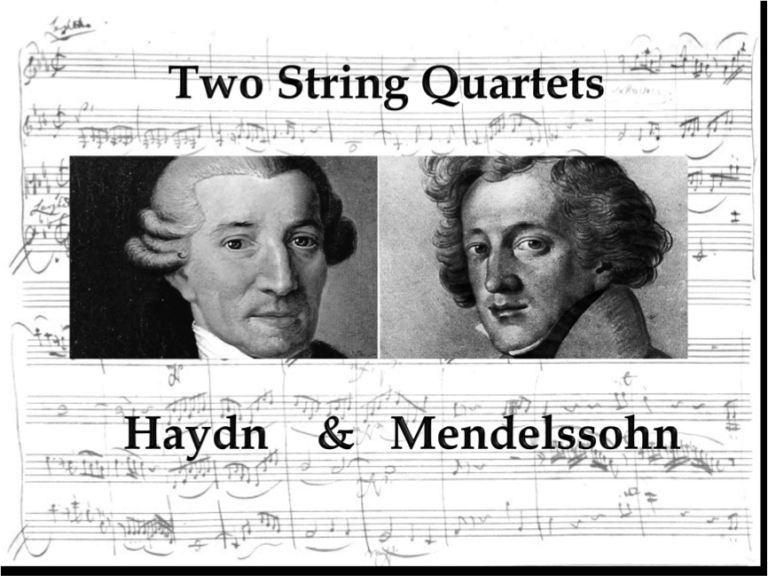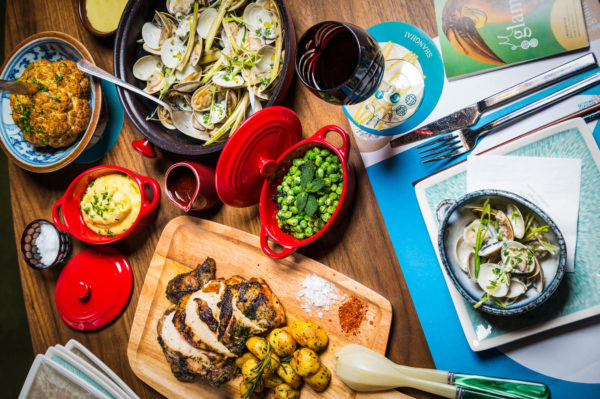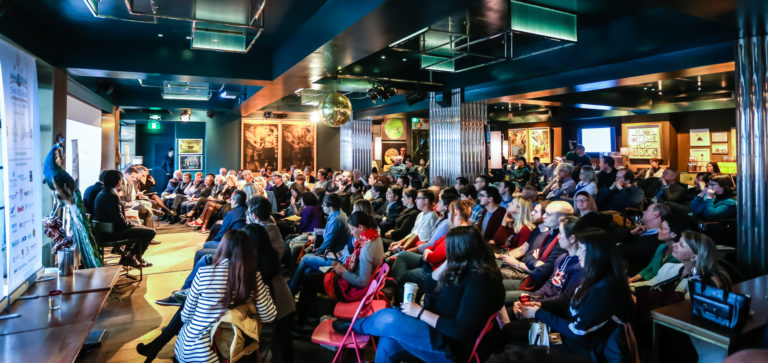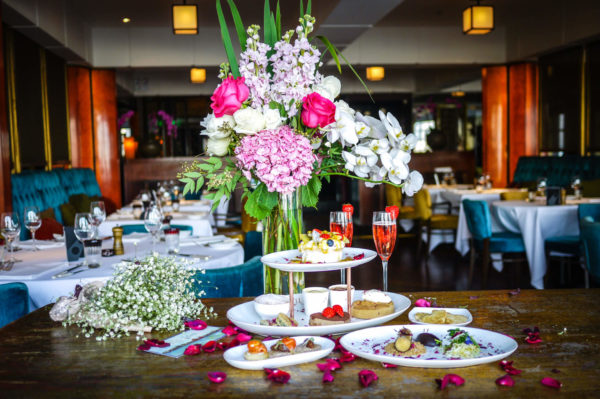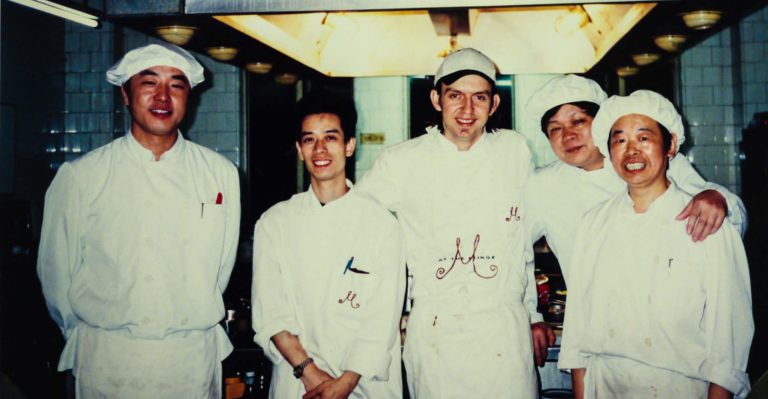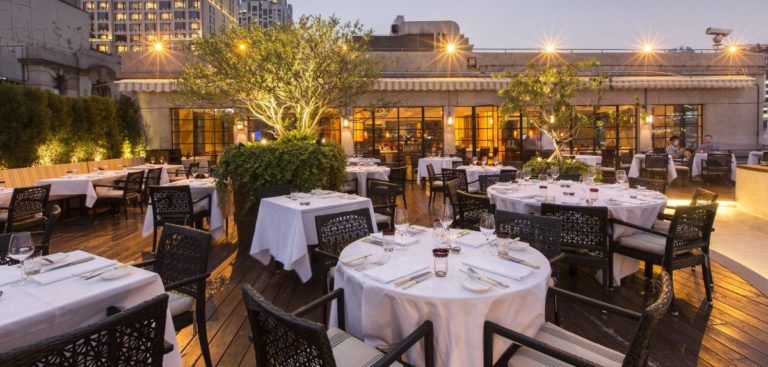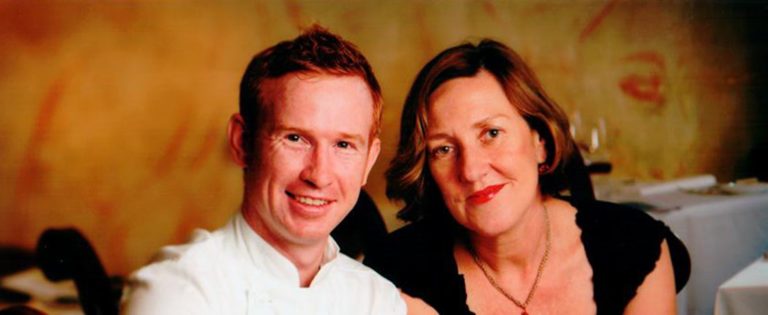| Ticket Type |
Event Details |
Price |
|
| Adults |
June 25, 2017 at 4:00 PM |
¥ 85.00 CNY |
|
| Students/Kids |
June 25, 2017 at 4:00 PM |
¥ 40.00 CNY |
|
Next month the Crystal Room Quarterly Chamber Music series bring back the intriguing combination of Haydn and Mendelssohn: Haydn of poor village roots who lived to great old age as the most famous composer of his day; and Mendelssohn born to German intellectual and financial elite, also attaining great fame, but whose life was cut short a the age of 38. Both saw pinnacle of their success in London where Haydn in this sixties was mobbed like a rock star and Mendelssohn gave music lessons to none other than Queen Victoria.
We might think of Haydn, the creator of the string quartet, as the most classical of classical composers. Similarly Mendelssohn is viewed as the most classical of the early Romantic composers with his more conservative attraction to earlier form and balance.
In our programme in June, one area where Mendelssohn demonstrates his Romantic instead of Classical sensitivities is in how a tragic biographical event directly influenced his music and his choice of writing in a minor key. (We have come to think of minor keys expressing sadder or more troubled music.) Now certainly Haydn and Mozart wrote a lot in minor keys, but it would be wrong to think that they chose a minor key simply because they were personally sad. Since in our time we view Classical era music through a lens coloured by Romanticism, we often do try to attribute the mood in music of Haydn and Mozart to some event in their lives, but I think that it is an exaggeration to do so. Theirs was a highly professional, objective as well as sublimely artistic craft. They could write something sad or happy on command. Indeed Mozart wrote his G minor and C major symphonies as well as his G minor and C major string quintets at virtually the same time. Yes Mozart was sick and under-appreciated when he wrote his minor key Requiem, but he wrote the uplifting Magic Flute and Clarinet concerto at the same time. Haydn preferred major keys for his string quartets, but almost every set of six quartets has one in a minor key for balance. However we should not infer that he was only sad one-sixth of the time!
The event that led Mendelssohn to write his Opus 80 Quartet was the sudden death of his older sister Fanny. Mendelssohn was inconsolable and fell ill himself. At the urging of friends he took a break by going to Lucerne where he composed his quartet. It is one of the most moving and agitated expressions of bereavement and angst in the quartet literature. It was the last major piece of music that he would write. He died less than six months later on November 4, 1847 of a stroke just like his sister.
We will talk more about classicism and romanticism on June 25. We will also look at some watercolours that Mendelssohn painted in Lucerne while writing his Opus 80 Quartet. Can we detect a troubled spirit in those paintings as well? Well, come on June 25th at 4pm and join our discussion and enjoy this magnificent music. We welcome back the award-winning, young Song Quartet. You will not want to miss this treat!
As always, a little listening preparation, while not absolutely necessary, will help us to enjoy the music more at the concert. Here are a couple of suggestions for your pre-listening:
Haydn Opus 74 number 3 “The Rider” (VPN required): https://www.youtube.com/watch?v=F8rdK0XpJoA
Mendelssohn Opus 80 (no VPN required): http://v.youku.com/v_show/id_XMTYxNzk3MTUyNA==.html?from=s1.8-1-1.2&spm=a2h0k.8191407.0.0
See you on June 25th!
Bob Martin
Shanghai Chamber Music Lovers & Shanghai Conservatory’s Atelier of Chamber Music
Ensemble Les Amis
Sunday June 25, 2017 4:00pm
The Programme
Joseph Haydn (1732-1809)
Haydn: String Quartet in G Minor,Op.74 No.3
海顿:G小调弦乐四重奏,作品74之3
I. Allegro快板
II. Largo 广板
III. Menuet 小步舞曲
IV. Finale 终曲
Felix Mendelsshohn (1809-1847)
Mendelssohn: String Quartet in f minor Op.80
门德尔松:弦乐四重奏,作品80
I. Allegro vivace assai活泼的快板
II. Allegro assai很快的快板
III. Adagio 柔板
IV. Finale (Allegro molto) 终曲(很快的快板)
The Perfomers
松四重奏 Sōng Quartet
小提琴:陈家怡、李秉璋 Violins: Chen Jiayi, Li Bingzhang
中提琴:曹亦博 Viola: Cao Yibo
大提琴:朱天添 Cello: Zhu Tiantian


